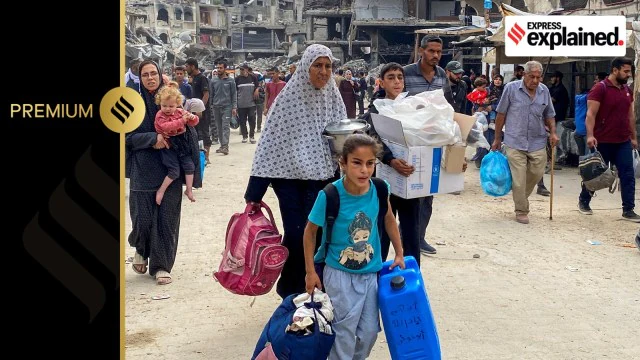Reflecting on the last year of turmoil in West Asia reveals the intricate dynamics and consequences of the ongoing strife. This period has been characterized by heightened tensions, evolving alliances, and a humanitarian crisis impacting millions.
Major Developments
- Intensified Clashes: Areas such as Syria, Yemen, and the Israeli-Palestinian territories have witnessed significant military escalations. Armed groups and national forces have engaged in extended confrontations, resulting in considerable casualties and displacement.
- Humanitarian Crisis: The conflict has deepened humanitarian woes, leaving millions grappling with food shortages, inadequate medical care, and forced displacements. International agencies have urgently called for aid, yet access remains severely restricted due to ongoing violence.
- Geopolitical Realignments: The warfare has prompted shifts in regional alliances, compelling nations to reevaluate their foreign policies. This year has seen an increase in involvement from global powers, further complicating the landscape.
- Challenges to Peace: Negotiation efforts for peace have been inconsistent and often disrupted by renewed hostilities. The road to resolution appears challenging, as longstanding grievances and rivalries continue to hinder progress.
Conclusion
The last year in West Asia highlights the precarious nature of peace in the region. As the situation develops, there is a pressing need for comprehensive dialogue and humanitarian assistance to alleviate the suffering of affected populations and work towards sustainable stability.
October 7 marks one year since the terrorist assault by Hamas on Israel. Following extensive military operations in Gaza, Israel has now directed its retaliation northward towards Hezbollah. With West Asia on the brink of all-out war, here’s an overview of the situation from the perspectives of the U.S., Arab capitals, and India.
U.S. Perspective
The United States continues to support Israel’s right to defend itself while urging restraint to prevent further civilian casualties in Gaza. U.S. officials are actively engaged in diplomatic efforts to de-escalate tensions and promote humanitarian assistance.
Arab Capitals
Many Arab nations express serious concern over the humanitarian crisis in Gaza and the potential for regional conflict. Leaders are calling for immediate ceasefires and diplomatic solutions, emphasizing the need to address Palestinian rights alongside regional stability.
India’s Stance
India has consistently called for dialogue and peaceful resolution of the Israeli Palestinian conflict. It supports the rights of the Palestinian people while acknowledging Israel’s security needs, advocating for balanced approaches to promote lasting peace in the region.
As tensions rise, the international community is closely monitoring developments, hoping for a path toward de-escalation and renewed negotiations.
The crisis in West Asia that began with the Hamas terrorist attacks on October 7, 2023, has now persisted for a year. Israel’s ground operations and aerial bombardments in Gaza and Lebanon have resulted in the deaths of over 41,000 people, by conservative estimates. Gaza is largely devastated, yet Hamas is reported to still hold 97 of the original 251 hostages.
On the anniversary of the October 7 attacks, here’s an overview of the situation from various perspectives:
Israel
Israel continues its military operations in response to the initial attacks by Hamas, emphasizing its right to defend itself. The government is focused on neutralizing Hamas’s capabilities and recovering hostages, while also grappling with the humanitarian implications of its actions.
Washington and Other Western Capitals
The U.S. and other Western nations have expressed strong support for Israel’s right to self-defence. However, there are increasing calls for measures to protect civilians in Gaza and address the humanitarian crisis. Diplomacy is being emphasized to seek a path toward de-escalation and potential peace negotiations.
Arab States
Many Arab nations are alarmed by the ongoing humanitarian catastrophe in Gaza and the broader implications for regional stability. Leaders are advocating for immediate ceasefires and urging a resolution that considers the rights of Palestinians, while some have also called for an end to violence on all sides.
New Delhi
India has maintained a balanced stance, supporting the need for dialogue and a peaceful resolution to the conflict. It has expressed concern for the humanitarian situation in Gaza while recognizing Israel’s security challenges, aiming to promote stability in the region.
As the situation evolves, the international community remains focused on finding a resolution that can address both security concerns and humanitarian needs.







